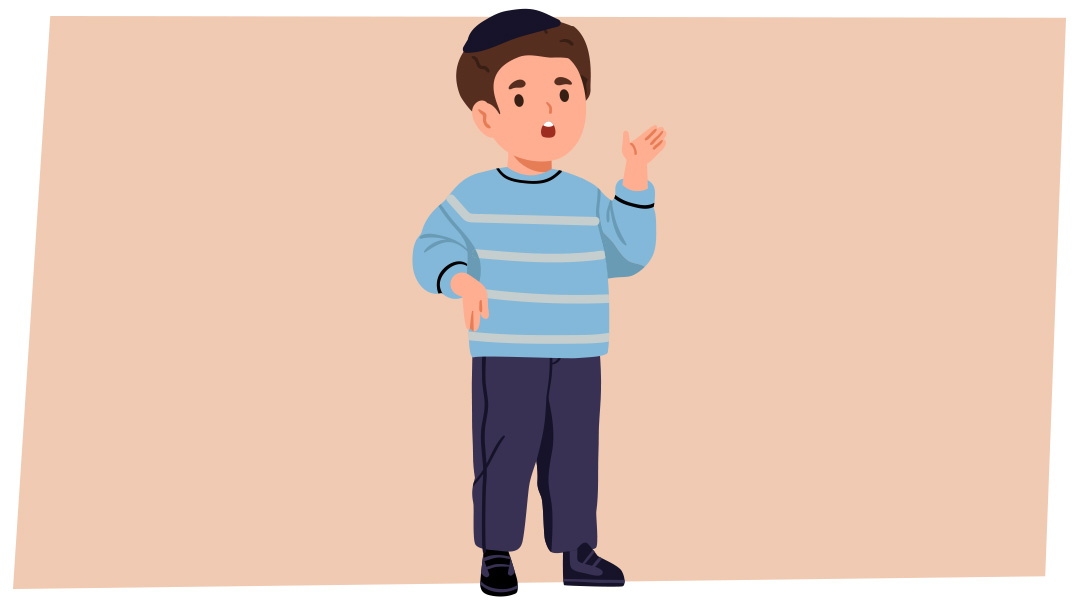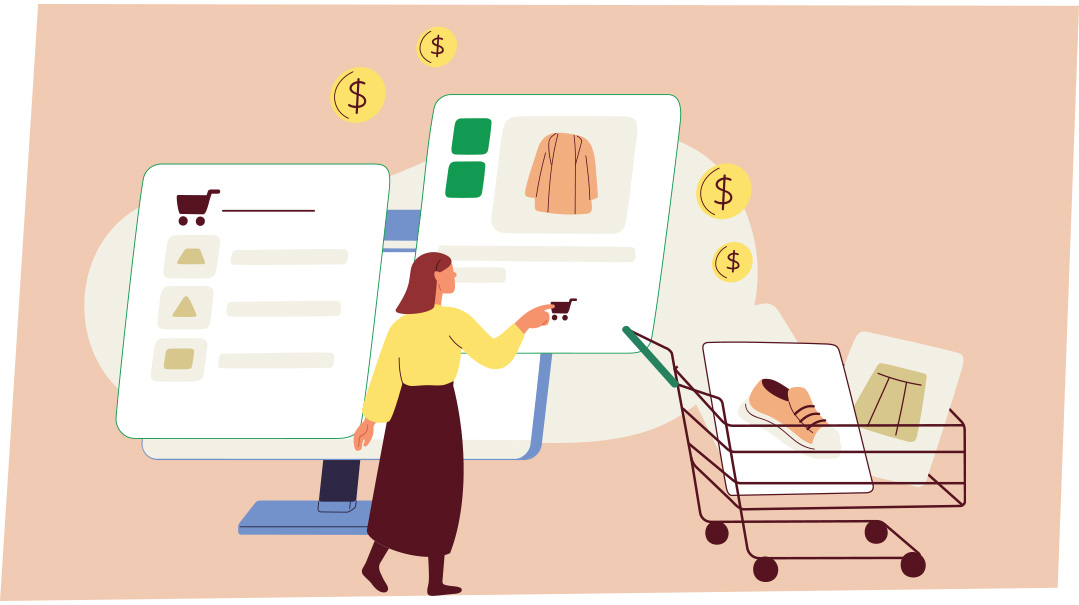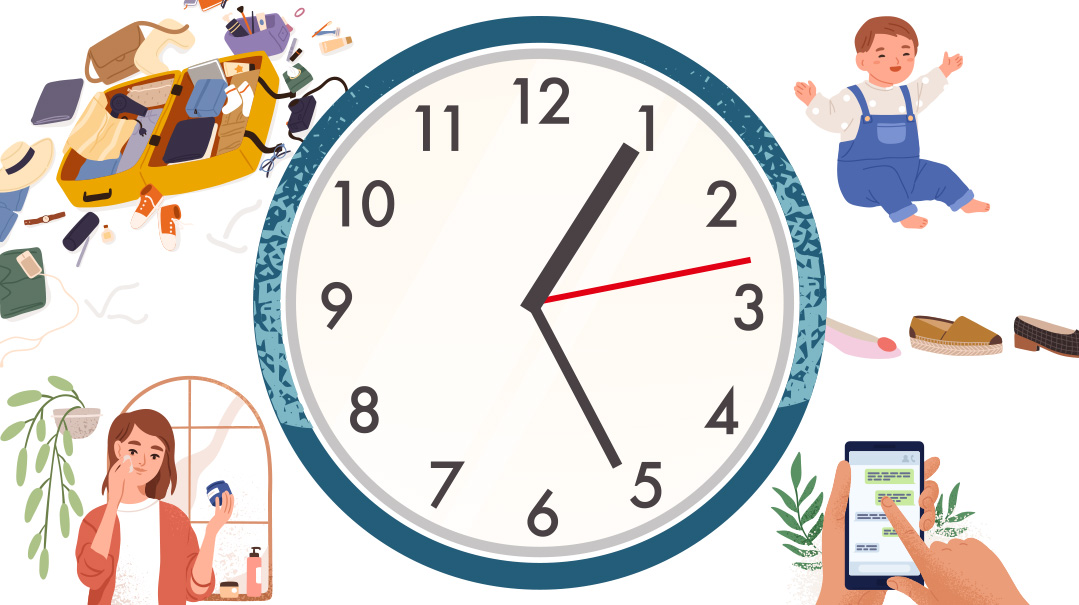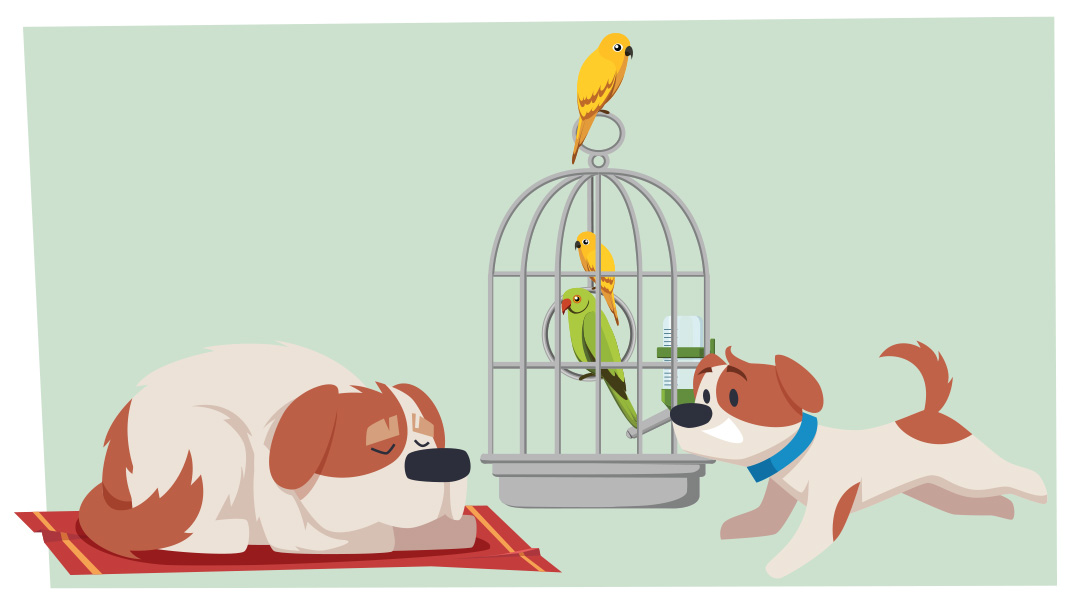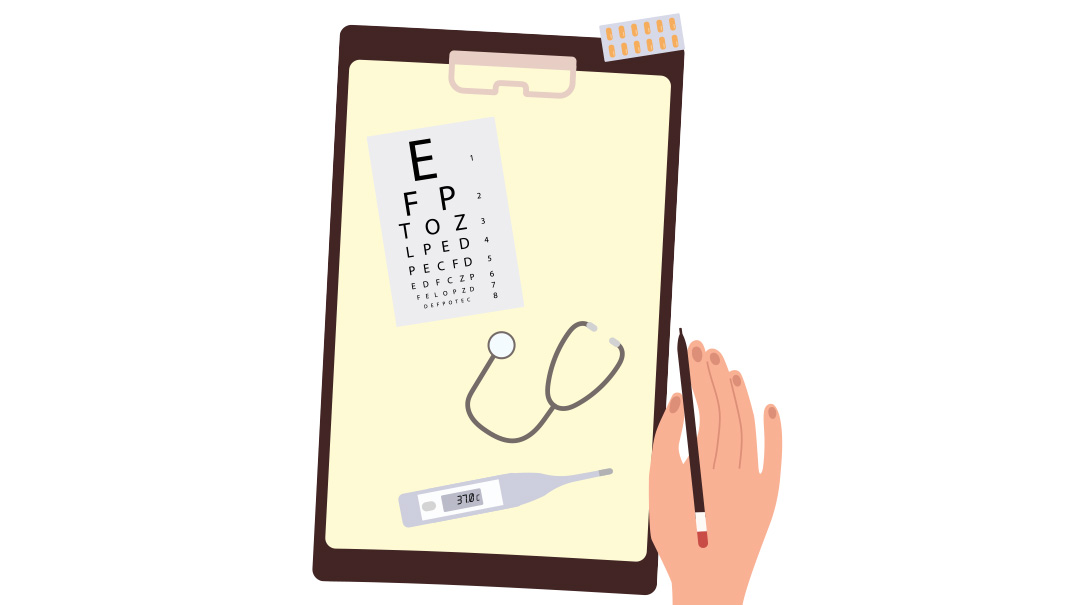Life in the Forties
| February 15, 2022Wait a second, does this mean I’m old? But I’m the new 30! The new 20! I’m practically his age!
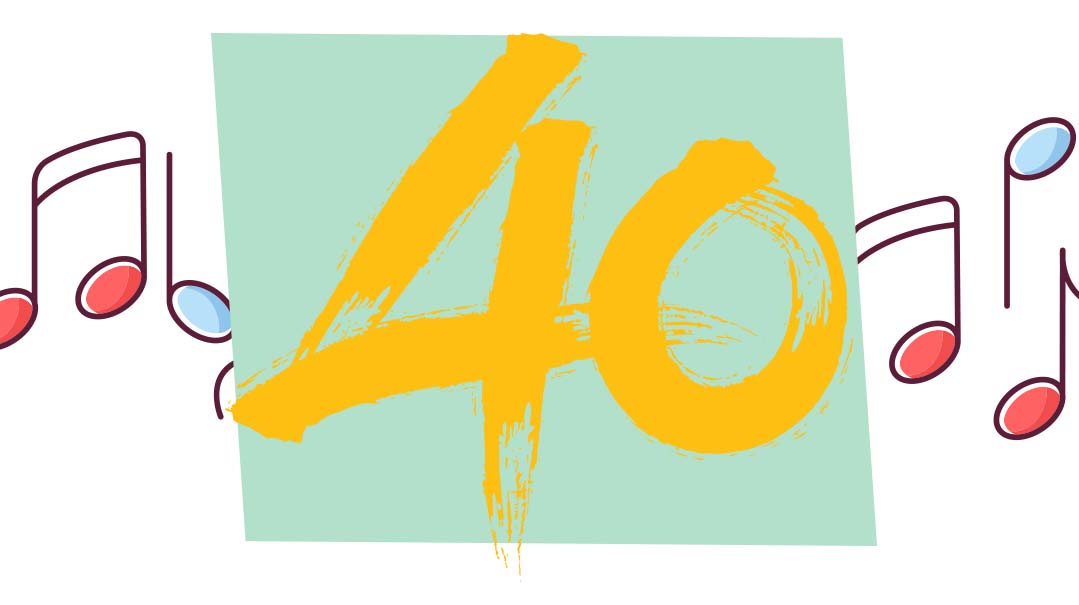
Do you identify?
Back when I was at an age when age was something to be proud of (and back when being a New York Times-subscribing family was something to be proud of), there was a popular column by Anna Quindlen called Life in the Thirties.
I knew it was popular because my mother quoted it often. (And because, well, it was in the New York Times. If you look at my eighth-grade yearbook bio, you’ll see I was a little obsessed. Also, that I haven’t yet achieved my Life Aspirations. Also, that I grew up during the years of the Bump. Not that I’m suggesting you look at my eighth-grade yearbook.)
I’ve never read the column, because I knew it wasn’t for kids like me; it was for 30-something women like my mother — you know, women who were old and wanted to laugh about it.
This, of course, was in the good old days, when 30 was 30 and 50 was 50, and chronological age was nothing to be ashamed of. Unless you were a woman past “a certain age,” in which case, you were 29, so all was good.
You: How old are you, Bubby?
Bubby: Twenty-nine, sheifeleh.
You (with a suspicious look at your mother): Mommy, you must be lying.
Today, things are different. Age is no longer a number; it’s a state of mind. “Sixty’s the new forty!” “Seventy’s the new fifty!” In fact, three years ago, 69-year-old Emile Ratelband petitioned the Dutch courts to allow him to legally change his age, claiming he identified as a 49-year-old. (The courts rejected his petition.)
But here’s the thing. Have you noticed that it’s only a “state of mind” once you reach a certain age?
Nobody’s telling a twenty-year-old that “twenty is the new ten.” Or reassuring a ten-year-old that he doesn’t look a day over one-and-a-half.
Yet, as soon as you turn 40, you have people rushing to assure you there’s no need to panic. Don’t you know that 40’s the new 30? According to some Google girsa’os, it’s even the new 20! (Show me a normal 40-year-old who wants to go back to the insecurity and high heels of 20.)
As an attempt to restore the pride of age to what it used to be, here are some signs that, popular memes notwithstanding, you really are 40.
You’re starting to forget things.
I don’t mean what you ate for breakfast or the password for your online bank account. No, you find yourself groping for words a lot more than you used to. Nice, specific words like spatula or corroborate or Milwaukee get left on the tip of your tongue, so that your conversations go something like this:
“Sure, I can agree — no, not agree exactly, what’s the word? — that Uncle Harry’s considering a shidduch with a widow from, um, that city in the Midwest — starts with an M — who’s over 70. But don’t worry, she identifies as a 50-year-old. Shiffy, can you pass me the pancake thingy?”
Now, in my opinion this word retrieval issue isn’t age-related; it’s because we 40-somethings have too many things going on in our brains.
Think about it. At any given moment, our brains are constructing the report we need to write for work; mentally scanning our pantry to determine whether we need to stop off at the store on the way home; noticing that Shloimy’s sneakers have holes; wondering whether it’s too early to call back the shadchan to ask if the other side has an answer; reminding ourselves to call Uncle Harry on Tuesday and wish him happy birthday; worrying whether Shiffy remembered to fill out her seminary application last night; suggesting we might want to send just one more reminder to our husband to pick up Layaleh from the babysitter; and stewing over the fact that the lady sitting next to us doesn’t look a day over 30, though she showed you pictures of her ten grandchildren.
With all that stuff your 40-year-old brain is being asked to handle, is it any wonder that “perpendicular” doesn’t make it to the top of your mental recall list?
This is also the reason that words sometimes make an appearance at random, inappropriate times.
Shloimy: Bye, I’m going to Moshe’s house to play.
You: Don’t forget to take your spatula.
Of course, you meant coat, and, what’s more, Shloimy also knows it. But rather than apologizing for interrupting your poor, overloaded brain right in the middle of its dinner-planning, he snickers at his old mother and leaves coatless.
Young people are no longer so young.
When you’re 20 or 30, young people are actually young. They’re adolescents just figuring out the world, and you, by virtue of being older, really are wiser.
But once you hit 40, those “younger” people aren’t so young anymore. They may be your doctor, accountant, or political representative. Or your boss. It’s disconcerting the first time you look around a room and realize you’re the oldest person there. You may even be tempted to throw out some Youthful Comment to prove you’re still one of the gang.
Don’t. You’re just asking for trouble.
You: What you’re saying reminds me of an awesome devar Torah I heard in seminary!
Young Person: Cute! What year were you there?
You: Er… before you were born.
Once you get past the denial stage, there may be an equal temptation to go to the opposite extreme and play the bubby.
“Now, back in the Dark Ages when I was in seminary…” Chuckle, chuckle.
Also, don’t.
Nowadays, only 100-is-the-new-80-year-olds can carry off the “trekking to school in six feet of snow” reminiscence with the dignity it deserves.
Corollary of #2: You finally achieve the confidence levels of today’s average 25-year-old.
Is it just me, or are young people much more confident today than they used to be? At last, you’ve reached an age where you’ve amassed a certain amount of knowledge and experience and are finally able to feel reasonably confident that you may, sometimes, under certain circumstances, actually know what you’re doing.
And then you see the following posting on your local list:
Hey, guys! So after having gone through shanah rishonah myself, I’ve now developed this fab technique for helping other young couples not just survive but THRIVE! Contact me for individual or group counseling! Slots filling up fast!
Or you overhear a 23-year-old colleague tell a client that, “Trust me, you don’t want to waste your money on X, no one’s buying that today. In my experience, you should focus on Y, that’s what sells.”
And you can’t help but think back to how clueless and insecure you yourself felt at that age and wonder where today’s young whippersnappers get their arrogance.
It must be social media’s fault.
At a chasunah, you dance in the slow, mother-of-the-kallah circle.
You also complain about the loud music.
On the subject of music: You’re taken aback when some young musical artist names the classics that inspired him — and those “classics” were the trendy songs of your high school years.
Wait a second, does this mean I’m old? But I’m the new 30! The new 20! I’m practically his age!
Wait. I was in high school before he was born. Oh.
All of this is just to emphasize that whatever life stage we’re in, it’s important to embrace it. To feel proud of who we are and what we’ve accomplished. Even if we didn’t quite live up to our eighth-grade yearbook aspirations. That’s why, personally, I proudly tell people my age when asked.
I’m 29. How about you?
(Originally featured in Family First, Issue 781)
Oops! We could not locate your form.

